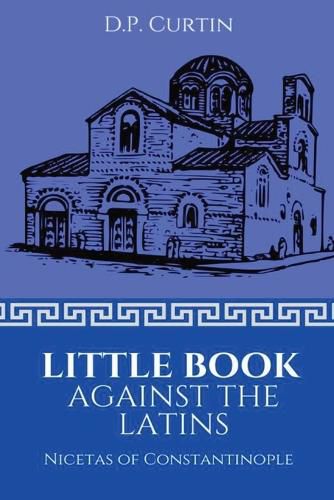Readings Newsletter
Become a Readings Member to make your shopping experience even easier.
Sign in or sign up for free!
You’re not far away from qualifying for FREE standard shipping within Australia
You’ve qualified for FREE standard shipping within Australia
The cart is loading…






This title is printed to order. This book may have been self-published. If so, we cannot guarantee the quality of the content. In the main most books will have gone through the editing process however some may not. We therefore suggest that you be aware of this before ordering this book. If in doubt check either the author or publisher’s details as we are unable to accept any returns unless they are faulty. Please contact us if you have any questions.
This short treatise was written by the Byzantine monk, Nicetas, who disputes some points of Eucharistic theology which has become increasingly divergent from when he is writing in the 8th century. His biggest point of disputation is directly at the Latin church's use of unleavened bread as part of their liturgy, in contrast to the "living bread" more frequently utilized by the churches of the east. His work foreshadows the growing tension that was beginning to be exhibited between the sees of Rome and Constantinople in his own time.
$9.00 standard shipping within Australia
FREE standard shipping within Australia for orders over $100.00
Express & International shipping calculated at checkout
Stock availability can be subject to change without notice. We recommend calling the shop or contacting our online team to check availability of low stock items. Please see our Shopping Online page for more details.
This title is printed to order. This book may have been self-published. If so, we cannot guarantee the quality of the content. In the main most books will have gone through the editing process however some may not. We therefore suggest that you be aware of this before ordering this book. If in doubt check either the author or publisher’s details as we are unable to accept any returns unless they are faulty. Please contact us if you have any questions.
This short treatise was written by the Byzantine monk, Nicetas, who disputes some points of Eucharistic theology which has become increasingly divergent from when he is writing in the 8th century. His biggest point of disputation is directly at the Latin church's use of unleavened bread as part of their liturgy, in contrast to the "living bread" more frequently utilized by the churches of the east. His work foreshadows the growing tension that was beginning to be exhibited between the sees of Rome and Constantinople in his own time.